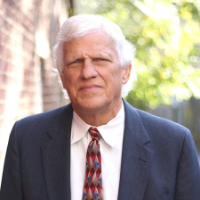Sparta DUI-DWI Lawyer, Kentucky
Sponsored Law Firm
-
 x
x

Click For More Info:
-
Law Office of Mark S. Guralnick
55 Madison Avenue 4th Floor Morristown, NJ 07960» view mapCriminal Defense Law Dedicated. Fearless. Successful.
Mark S. Guralnick and his legal team have helped clients throughout the USA and across the world by applying unparalleled dedication and hard work to each case.
800-399-8371
Brad Fox
✓ VERIFIEDFelony, Misdemeanor, DUI-DWI, Divorce, Child Custody
We are smart and aggressive trial lawyers seeking the best interest of our clients.
Brad was born and raised in Cincinnati. After graduating from Princeton High School he attended the College of Mount St. Joseph where he studied histo... (more)
Robert H Cornett
✓ VERIFIEDSocial Security, Criminal, DUI-DWI
I have practiced Social Security law for more than thirty years in Kentucky as well as many other states. I represented Social Security claimants in B... (more)
James Richard Scott
Alimony & Spousal Support, Child Support, DUI-DWI, Criminal
Status: In Good Standing
FREE CONSULTATION
CONTACTJonathan Mark Bruce
Traffic, White Collar Crime, DUI-DWI, Criminal, Bankruptcy
Status: In Good Standing
FREE CONSULTATION
CONTACTFREE CONSULTATION
CONTACTWilliam Gerard Geisen
Construction Contracts, Real Estate, Lawsuit & Dispute, DUI-DWI
Status: In Good Standing
Michael William Bouldin
Criminal, Divorce & Family Law, DUI-DWI, Estate, Car Accident
Status: In Good Standing Licensed: 30 Years
 Mark Guralnick Morristown, NJ
Mark Guralnick Morristown, NJ AboutLaw Office of Mark S. Guralnick
AboutLaw Office of Mark S. Guralnick Practice AreasExpertise
Practice AreasExpertise


